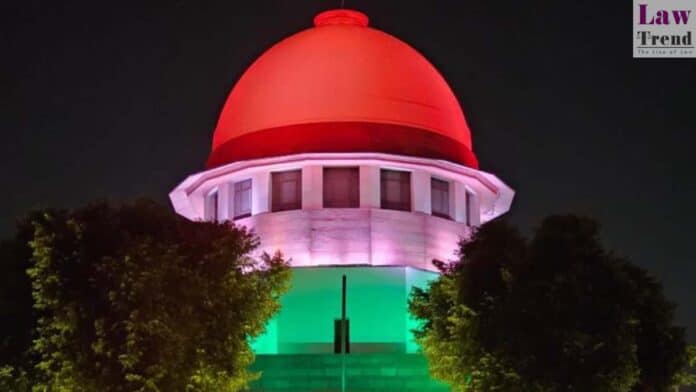The Supreme Court on Wednesday said the Centre must take a “considered view” on the reconstitution of the delimitation commission to ensure proportional representation of Limbu and Tamang tribal communities in Sikkim and West Bengal.
A three-judge bench headed by Chief Justice D Y Chandrachud said the demand of Limbu and Tamang communities for the grant of proportional representation has a constitutional foundation which can be found in Articles 330 and 332 of the constitution.
The top court said the communities which have been designated as STs since 2012 have had no political representation, which is nothing but “injustice.”
“Though we are conscious that we cannot direct the parliament to enact a law. We are of the view that the Union of India must take a considered view if the delimitation commission should be reconstituted to ensure justice to those communities who have been designated as Scheduled Caste (SC) and Scheduled Tribes (ST),” the bench also comprising Justices JB Pardiwala and Manoj Misra said.
The top court asked the Centre to discuss the issue with the Chief Election Commissioner and respond to it by Thursday.
The apex court also refused to buy the Centre’s argument that the delimitation commission cannot be constituted till the 2026 census is carried out.
“When will it be done? In 2031? These communities will have to wait for another eight years to get a reservation. You are two decades behind. You are denying a constitutional mandate,” the bench said.
The top court was hearing a plea by the Public Interest Committee for Scheduling Specific Areas, or PICSSA, an NGO, which argued that Limbu and Tamang communities, both belonging to the ST category, have been denied proportionate representation in West Bengal and Sikkim.
Advocate Prashant Bhushan, appearing for the NGO, had earlier claimed that there was a rise in the ST population in Sikkim and West Bengal and not reserving seats for them proportionate to the growth amounted to denial of their constitutional rights.
The NGO in its plea claimed that the population of Limbu and Tamang communities in Sikkim was 20.60 per cent in 2001 and had risen to 33.8 per cent in 2011.
Also Read
It also said that in the Darjeeling area of West Bengal, the ST population rose to 21.5 per cent in 2011 from 12.69 per cent in 2001.
The PIL had sought direction from the Centre, the poll panel, and the two states to take steps for proportional representation of STs, as guaranteed under Articles 330 (reservation of seats for SCs and STs in the House of People) and 332 (reservation of seats for SCs and STs in legislative assemblies of states) of the Constitution, to prevent violation of Article 14 (Equality before law).
The petition said that in the Tribes Advisory Council established in West Bengal on March 6, 2012, there were no elected members from STs from the three hill area subdivisions of the Darjeeling district.
“Moreover, the state assembly elections in 2016 had no reserved ST seat and hence had no implementation of articles 170 and 332 of the Constitution notified as per census 2011. The delimitated assembly seats in Darjeeling hills presently consist of elected non-ST members,” it said.




